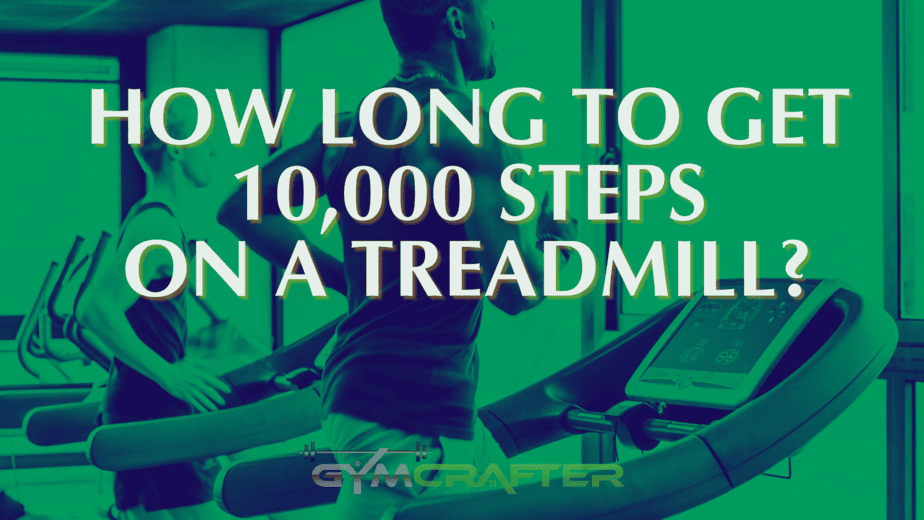Imagine being able to achieve your fitness goals without having to go outside or worry about the weather. Walking on a treadmill has become a popular way to stay active, and many people aim to reach the daily goal of 10,000 steps. But just how long does it take to walk those 10,000 steps on a treadmill? In this article, we will explore the various factors that can influence the time it takes to reach this milestone, and provide you with some tips to make the most of your treadmill workout. Get ready to step into a healthier lifestyle!
Factors Affecting Walking Time on Treadmill
When it comes to walking on a treadmill, there are several factors that can affect your walking time. These factors include speed, incline, fitness level, and stride length. By understanding how each of these factors contributes to your walking time, you can better plan your treadmill workouts and achieve your fitness goals more effectively.
Speed
One of the first factors to consider when determining your walking time on a treadmill is the speed at which you walk. The speed at which you walk is measured in miles per hour (mph). The faster you walk, the less time it will take for you to complete a certain distance, such as walking 10,000 steps.
To give you an idea of the average walking time at different speeds, let’s consider a few common speeds:
Slow Walk (2 mph)
Walking at a slow pace of 2 mph, it may take you approximately 1 hour and 40 minutes to complete 10,000 steps on the treadmill.
Moderate Walk (3 mph)
Walking at a moderate pace of 3 mph, you can expect to complete 10,000 steps in around 1 hour and 20 minutes.
Brisk Walk (4 mph)
Picking up the pace to a brisk walk of 4 mph will enable you to finish 10,000 steps in about 1 hour.
Fast Walk (5 mph)
If you can maintain a fast walk speed of 5 mph, you may be able to complete 10,000 steps on the treadmill in around 48 minutes.
Incline
Another important factor affecting your walking time on a treadmill is the incline. Walking on an inclined surface adds an extra challenge to your workout, engaging different muscles and increasing the intensity of your exercise. The incline is typically measured in percentages, indicating the height of the slope.
Let’s consider the average walking time at different inclines:
Flat Surface (0% incline)
Walking on a flat surface with no incline, you can expect to complete 10,000 steps in the previously mentioned times for different speeds.
Low Incline (1-3%)
Walking on a low incline of 1-3%, you may need approximately 1 hour and 10 minutes to complete 10,000 steps.
Medium Incline (4-6%)
Increasing the incline to a medium level of 4-6% will likely require around 1 hour to complete 10,000 steps on the treadmill.
High Incline (7-10%)
Walking on a high incline of 7-10% can significantly increase the intensity of your workout. At this incline, it might take you roughly 50 minutes to achieve 10,000 steps.
Fitness Level
Your fitness level also plays a crucial role in determining your walking time on a treadmill. Someone who is more physically fit may be able to walk at a faster pace and endure longer workout durations compared to someone who is just starting their fitness journey.
To understand the average walking time for various fitness levels, let’s consider three categories: beginner, intermediate, and advanced.
Beginner
For someone who is new to treadmill walking and has a lower fitness level, it’s important to start slowly and gradually increase intensity. A beginner may take around 1 hour and 30 minutes to complete 10,000 steps on the treadmill.
Intermediate
An intermediate fitness level indicates that you have been regularly walking on a treadmill for some time and have built up endurance. At this level, completing 10,000 steps may take around 1 hour and 10 minutes.
Advanced
Advanced fitness levels indicate a higher level of physical fitness and endurance. If you fall into this category, you may be able to complete 10,000 steps on the treadmill in approximately 1 hour.
Calculation Method for Walking Time
To determine your walking time on a treadmill, you can follow a simple calculation method. This method involves determining your speed, incline, and then calculating the walking time based on these factors.
- Determine Speed: Choose the speed at which you want to walk on the treadmill, whether it’s a slow walk, moderate walk, brisk walk, or fast walk.
- Determine Incline: Decide on the incline level you want to use during your workout. You can opt for a flat surface, low incline, medium incline, or a high incline.
- Calculate Walking Time: Once you have determined your speed and incline, you can calculate your walking time using the information provided earlier in this article.
Tips to Increase Walking Pace
If you’re looking to increase your walking pace on the treadmill, here are a few tips to help you achieve that:
Warm Up Properly
Before starting your treadmill workout, make sure to warm up properly. A warm-up helps prepare your muscles for exercise and can enhance your walking pace.
Maintain Good Posture
Maintaining good posture while walking on the treadmill is essential for maximizing your walking pace. Stand tall with your head up, shoulders back, and core engaged. This helps you maintain an efficient stride and propel yourself forward.
Use Arm Swing
Engage your arms while walking on the treadmill by swinging them naturally. Proper use of your arms can help increase your pace and overall walking efficiency.
Increase Speed Gradually
If you want to increase your walking pace, do so gradually. Start by increasing your speed by 0.1 or 0.2 mph every week until you reach your desired pace. This gradual progression allows your body to adapt and reduces the risk of injury.
Tips to Increase Fitness Level
Improving your fitness level can have a positive impact on your walking time and overall treadmill workout. Here are a few tips to help you increase your fitness level:
Incorporate Interval Training
Interval training involves alternating between high-intensity and low-intensity periods of exercise. Incorporating this type of training into your treadmill workouts can improve your cardiovascular fitness and increase your walking pace.
Include Strength Training
Strength training exercises, such as squats, lunges, and weightlifting, can complement your walking workouts. Building strength in your lower body and core muscles can enhance your walking pace and endurance.
Prioritize Regular Exercise
Consistency is key in improving your fitness level. Prioritize regular exercise by setting aside dedicated time for treadmill workouts. Aim for at least three to five days of treadmill walking per week to see significant improvements in your fitness level.
Track Progress
Tracking your progress is essential for staying motivated and monitoring improvements in your fitness level. Keep a record of your walking time, distance covered, and any other relevant metrics to see how far you’ve come.
Benefits of Walking 10,000 Steps on Treadmill
Walking 10,000 steps on a treadmill can bring about various benefits for your overall health and well-being. Here are some advantages of accomplishing this milestone:
Weight Loss and Management
Walking is a great way to burn calories and aid in weight loss or weight management. Walking 10,000 steps can contribute to creating a calorie deficit and assist in achieving your weight-related goals.
Improved Cardiovascular Health
Walking is an excellent cardiovascular exercise that helps strengthen your heart and improve circulation. By consistently walking 10,000 steps, you can enhance your cardiovascular health and reduce the risk of heart disease.
Stress Reduction
Engaging in physical activity, such as walking, can help reduce stress levels and promote a sense of relaxation. Walking on a treadmill is a convenient way to alleviate stress and improve your mental well-being.
Increased Energy Levels
Regular walking can boost your energy levels and combat feelings of fatigue. By completing 10,000 steps on the treadmill, you can experience an overall increase in energy throughout the day.
Alternative Exercises to Walking
While walking on a treadmill is an excellent form of exercise, there are alternative exercises you can try to keep your workouts varied and engaging. Here are some alternatives to walking on a treadmill:
Running on Treadmill
If you’re looking to increase the intensity of your workout, consider incorporating running on the treadmill. Running can elevate your heart rate and provide a different challenge for your cardiovascular system.
Elliptical Machine
Using an elliptical machine can provide a low-impact workout that engages both the upper and lower body. It offers a similar stride motion to walking or running but with less impact on the joints.
Cycling on Stationary Bike
Cycling on a stationary bike is a great cardiovascular exercise that puts minimal stress on the joints. It can be an effective alternative to walking for those with joint issues or for adding variety to your workouts.
Rowing Machine
Rowing is a full-body exercise that engages multiple muscle groups while providing a low-impact workout. It offers a different form of cardio and can be a refreshing change from walking on a treadmill.
Conclusion
Walking on a treadmill can be a fantastic way to achieve your fitness goals and improve your overall health. By considering factors such as speed, incline, fitness level, and stride length, you can better plan your treadmill workouts and optimize the time spent on this beneficial form of exercise. Whether you’re aiming to complete 10,000 steps or increase your walking pace, incorporating the tips provided in this article and exploring alternative exercises can help you make the most of your treadmill workouts. So lace up your shoes, hop on the treadmill, and start walking towards a healthier, fitter you!

